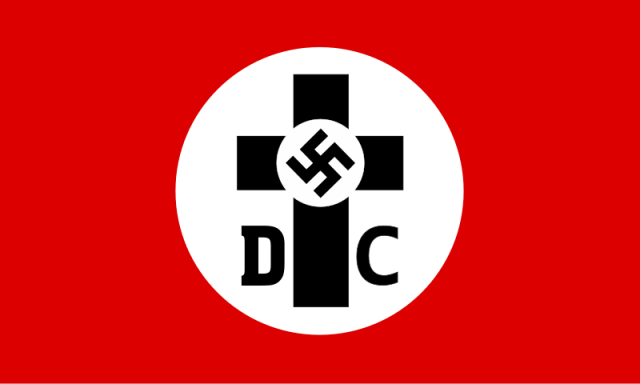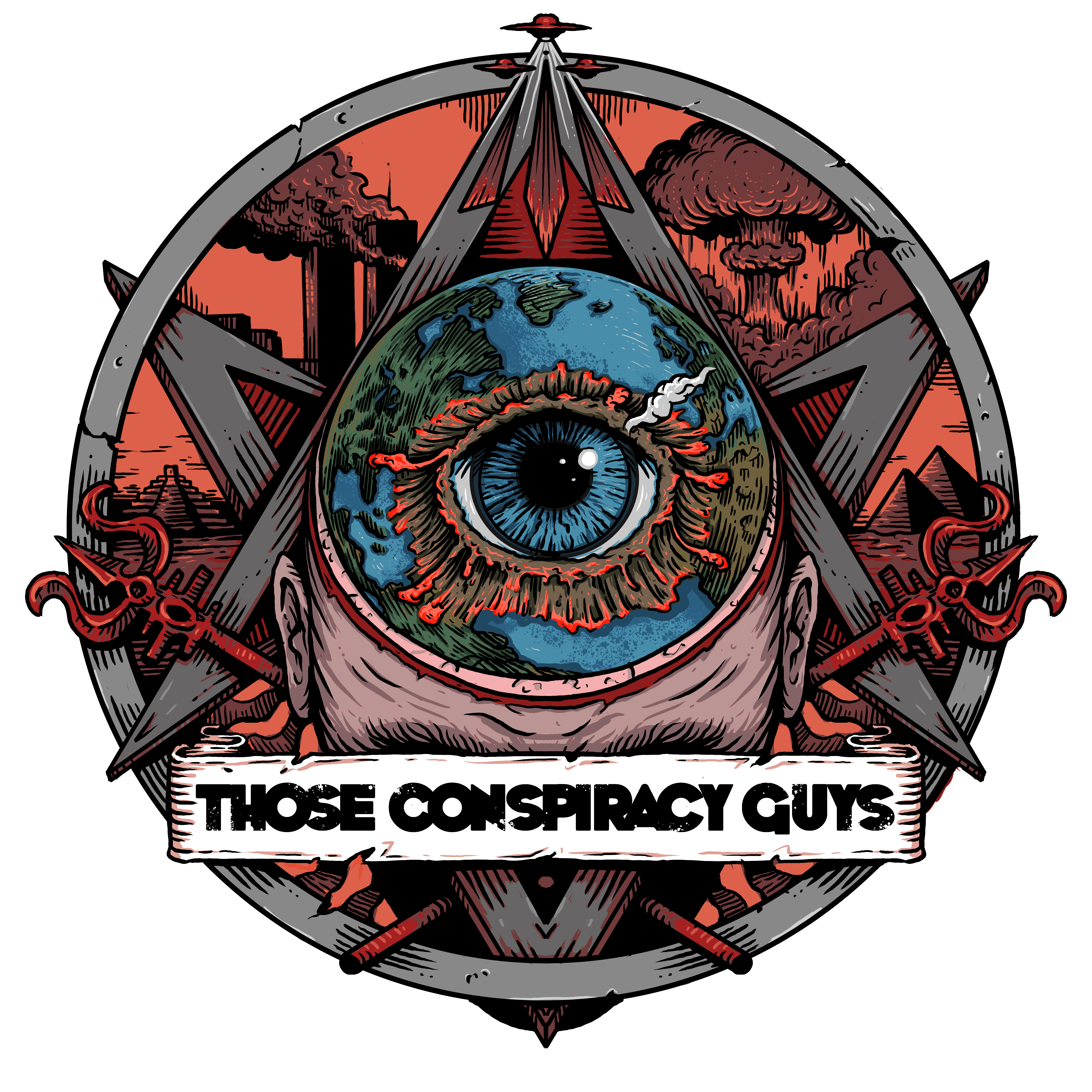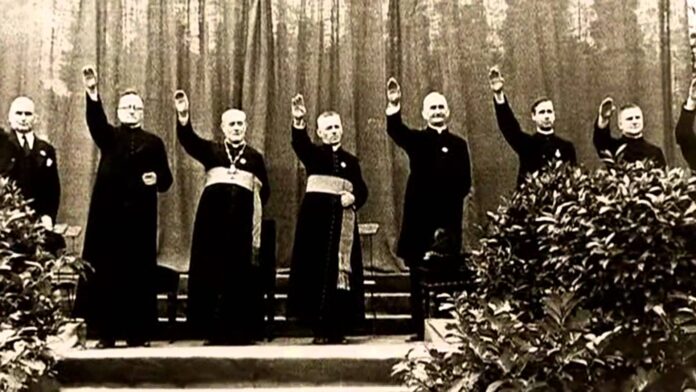“Like a rising star you appeared before our wondering eyes, you performed miracles to clear our minds and, in a world of skepticism and desperation, gave us faith.” – Joseph Goebbels on Adolf Hitler, 1922
Positive Christentum (Positive Christianity)
Most people are familiar with the overt symbolism and the belief structures that are part of the modern Christian religion – crosses, salvation through suffering, love for your neighbor, and a chosen Messiah and leader of men who was persecuted and reviled in his time by some and worshiped by others. Plenty of people would also recognize the symbolism and beliefs of the Nazis – swastikas, the idea of racial purity, Aryan and Germanic superiority over the lesser races, and the inherent evil of Judaism and the Jewish people. On the surface it would seem that there’s not much overlap between the two doctrines. However, as you can probably guess by the way this opening paragraph is going, the desire of the Nazis to rewrite history and recruit the souls along with the minds and bodies of the Germans would lead them to make the connection.

Positive Christianity was the movement that attempted to meld the racial and ideological tenets of National Socialism with elements of traditional Christianity. In the most cynical sense, this non-denominational movement – referenced publicly by Hitler in the 1920 Nazi Party Platform announcement – was strategic in nature. Many German Christians were hostile towards the established churches of the Nazis. Like other political strategies that the Nazis pioneered – some of which are still used today by modern politicians – it was an attempt to placate those disgruntled christlichen and by doing so, appeal to the most popular theology. With Germany’s thousand-year history of being predominantly Christian, it must have been a bitter pill to swallow for Hitler’s inner circle – chaps like Himmler, Rosenberg, Bormann, and Goebbels. They had originally planned to de-Christianize the country, but recognized the need to get the populace on their side. However, the anti-Semitic roots of Positive Christianity definitely made it easy to get behind.
Brief History of Positive Christianity

During the 19th century, the study of religious texts surrounding the figure of Christ led some scholars to make a distinction between Jesus Christ, the Messianic Son of God, and the historical Jesus that rocked around Galilea in sandals and socks, spreading the new word as a preacher. Some of those writers placed a racial and anti-Semitic emphasis on Jesus, redefining him as an Aryan hero struggling against the Jews who used his Nordic traits to inspire and lead his followers.
This interpretation of Christianity’s central figure, with the rejection of most of the major miracles and a view of the crucifixion as a Semitic murder plot instead of a transcendental event, slotted nicely into the Nazi playbook. Disaffected Catholics and Protestants alike could support this movement, especially as it veered away from the traditional, Papal leadership that many of them saw as being untrustworthy. Funny how that worked out, isn’t it?
Positive Christianity and Nazi Policy
“…The Fuehrer is the herald of a new revelation.” – Hans Kerri, Nazi Minister for Church Affairs, 1937
Not wanting to cast too narrow of a net, Hitler wrote in Mein Kampf that Christians were a perfectly acceptable base to recruit the new generation of Germans, as long as the Church stayed out of State affairs. In 1922 he self-identified as a Christian, although in private he looked down upon Christians, and there remains no evidence that he ever held any beliefs in the religion that were not politically motivated. He praised the work of Alfred Rosenberg, who wrote in The Myth of the Twentieth Century about the divinity of the Aryan-Nordic race, those same Nordic traits in Jesus which had been overlooked or purposefully covered up, and the opposing evil of the Jewish race and faith. (Hitler made sure however to keep a public distance between himself and the crazier ideas that Rosenberg held.)
The movement met with problems and resistance from many pastors after the Nazis planted a sympathetic leader in the newly formed Protestant Reich Church, created to unify the separate churches into one lean, mean, Fuehrer-worshiping machine. The new Reich Bishop, Ludwig Müller, kicked up a hornet’s nest of heresy in the eyes of the conservative Protestants, leading to the formation of the Pastor’s Emergency League and its later iteration, the Confessing Church. Members opposed the Nazi Regime, and declared themselves the true voice of Protestantism in the country.
Not So Positive Christianity
It seemed that Muller had failed in his efforts to unify the Proddies of Germany, and even the arrest of 700 pastors by the Nazis couldn’t sway them. Despite the appointment of Hans Kerri – a relative moderate compared to Muller’s perceived nuttiness – as the Minister of Church Affairs, protests from the Confessing Church continued. Amid internal strife on both sides, it turned out that the majority of German Christians didn’t bother siding with either of them. It could be interpreted that they saw some of the central tenets of Christianity – love thy neighbor, mercy, forgiveness – as being at odds with the actions and doctrines of the Nazi party. Hitler and his crew gradually gave up on their theological takeover of the country, and when the Reich fell in 1945, Positive Christianity faded away for the most part. As many preachers and Christians would probably say, maybe they just didn’t have enough Jesus in them to keep up the charade.




